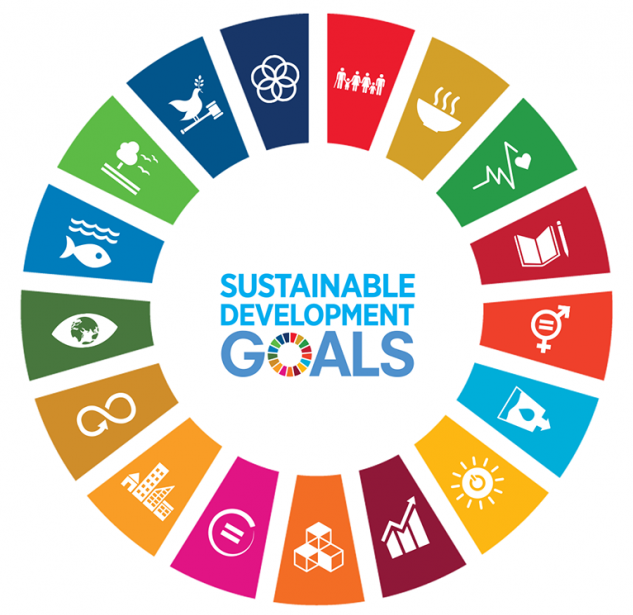 The 2030 Agenda for Sustainable Development, adopted by all UN Member States in 2015, outlines a global plan for a sustainable and equitable future. It addresses key issues like poverty, education, inequality, climate change, and environmental degradation, emphasizing collaboration among governments, businesses, and civil society to achieve its goals.
The 2030 Agenda for Sustainable Development, adopted by all UN Member States in 2015, outlines a global plan for a sustainable and equitable future. It addresses key issues like poverty, education, inequality, climate change, and environmental degradation, emphasizing collaboration among governments, businesses, and civil society to achieve its goals.
Implementing Sustainable Development Goals (SDGs) in university libraries is vital for fostering sustainability and advancing global development within academic institutions. Organizations like the International Federation of Library Associations and Institutions (IFLA) and the American Library Association (ALA) are at the forefront of promoting SDG initiatives in the library sector.
Accordingly, the University of Colombo Library has undertaken several initiatives to support the achievement of the SDGs, as outlined below.

The library has organised several webinars promoting the health and well-
being of the students and the staff of the university.
- Staff Motivational Session 2025
- Breast Cancer Awareness Programmes 2025
- Webinars by the Main Library
- Bibliotherapy: Leisure reading corners at Science, Medical and Nursing Libraries
- Health Literature Libraries and Information Services (HeLLIS) Network
The Medical Library has served as the focal point of the Health Literature Libraries and Information Services (HeLLIS) Network in Sri Lanka since 1980 offering resources and services to health and medical science professionals and para-professionals across the country and the Southeast Asian region.

The Colombo University library plays a key role in education and research by providing access to diverse resources, including books, journals, databases, and multimedia materials. They also offer workshops and seminars to enhance skills like information literacy and research, fostering lifelong learning and intellectual growth.
- ILRS 2025
- Colombo Discourses 2025
- Literary and Reading Month Programmes 2025
- Online and offline resources provided by the library
-
- Main Library Resources
– OPAC – Databases – E-journals & E-books – Special Collections: Scholars Corner, IMF Collection, World Bank Collection
- Workshops/ Seminars and Lectures
- Human Library Events
- Main Library research support provided by subject liaison librarians
- User services and user education


While promoting diversity and inclusion by offering resources and services, the University Library creates inclusive spaces where all individuals feel welcome and respected.
- Book Exhibition to Celebrates International Women’s Day 2025
- Library Learning Spaces
- Research Commons
- Assistance for the Visually Impaired Students



The library adopts eco-friendly sustainable practices in its operations by digitizing materials, maintaining e-documents, minimizing waste, improving sanitation facilities, and promoting recycling.
- E-documents instead of printed documents and materials
- Promotes clean water and sanitation for the users within the library premises
- Refillable drinking water facilities inside the library
- Restrooms on each floor of the library
- Zero waste and clean energy
- Utilizing LED bulbs to minimize electricity consumption
- Promote planting trees around the library premises
- Purchasing eco-friendly library supplies, less plastic & recyclable materials
- Waste management
- Utilizing staircases instead of elevators


The librarians assist researchers who are researching environmental factors such as forestry, wildlife, fisheries, zoology, entomology, wildlife, disaster management and more.

The library has partnerships with other institutions and organizations to create a more quality and modern teaching-learning environment.
Useful Resources on SDGs
- UN SDG Goals- https://sdgs.un.org/goals
- IFLA Powering Sustainable Development- https://www.ifla.org/units/sustainable-development/
- ALA Task Force on SDGs- https://www.ala.org/aboutala/ala-task-force-united-nations-2030-sustainable-development-goals
- EBSCO free research database on human impact to the environment- EBSCO GreenFILE
- JSTOR Sustainability collection on academic and open policy research on environmental stresses and their impact on society- JSTOR Sustainability
- SDG Initiatives by the University of Colombo- University of Colombo SDGs
Last Updated on December 16, 2025 by Main Library




